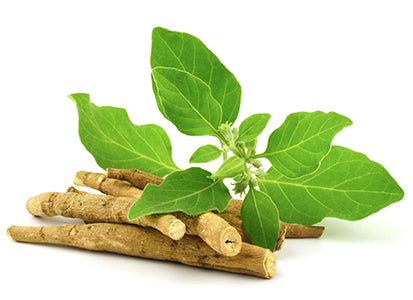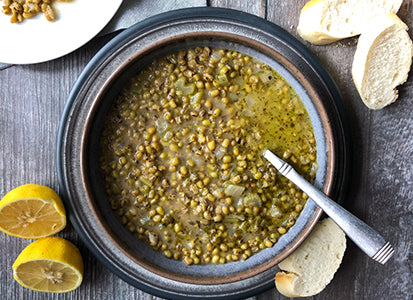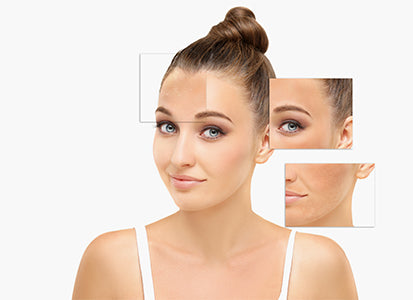Stress Management

At some time or the other in their life, everyone has experienced stress. Some are able to cope with this better than others. This blog is dedicated to all who would like to learn a unique Ayurvedic way of managing stress naturally.
But first, let us understand more about stress. Stress is the difference between expectation and reality. So, the greater the gap, the greater the stress level experienced. Stress is the body's response to physical, mental, or emotional pressure. This stress causes some chemical changes in the body which may raise Blood pressure, Heart rate or Blood sugar level
Global statistics show an astonishing 33 percent of people who report feeling extreme stress. 77 percent of people experience stress that affects their physical health. 73 percent of people have stress that impacts their mental health. 48 percent of people have trouble sleeping because of stress.
Ayurveda, an ancient Indian healing system, always speaks about the relationship of the body and mind. Ayurvedic principles state that what affects the body affects the mind, and what affects the mind affects the body. This psychosomatic relationship helps the Ayurvedic physician to understand various diseases like Irritable Bowel syndrome (IBS), Hypertension, Psoriasis, eczema etc and treat them in a special way. The digestive system, cardiovascular system, musculoskeletal system,nervous system, reproductive system, and the immune system are seen to be affected by excess stress, not to mention the metabolic functions which also get affected by the stress
Conventional allopathic medicine does have a set of medications to ease stress and reduce the ill effects without side effects. Some of these medicines for stress will induce sleep, but in reality, one doesn’t feel fresh with all the benefits of sleep.
Now let us consider three Ayurvedic ways to balance stress and anxiety.
Three ways to manage stress – Herbs, lifestyle practices, and procedures
Herbs
Ayurvedic science has a rich pharmacy blessed with natural herbs. Ashwagandha, Brahmi, Shatavari, Jatamansi, Tagara are some of the Ayurvedic herbs which have proven results for stress management.
Apart from single herbs we have Stresscom, Tranqwin, Usha, Nisha, Manas Mitra Vatakam Intellec are some of the products available at www.ayurvedafamily.com. These products are selected by our consultants using their two decades of experience and the Ayurveda Family proprietary “best of the best” process.
Daily lifestyle practices
Ayurveda recommends a daily routine for everyone in the form of Dinacharya. And this is ideal when we are trying to manage stress by balancing time related stress.
If we follow a regular pattern for our daily chores like waking up in the morning, bathing, work, lunch, exercises, dinner and our hobbies we will be able to use the time in the best possible way.
Listen to soothing music: Listen to soft, soothing instrumental music. Music helps to reduce stress and anxiety and uplift good moods.
Engage in Exercises: Ayurveda recommends regular exercises to maintain good health and overall wellbeing. Exercising regularly can have a positive effect on your mood, eases stress, reduces tensions and also helps in treatment of mild depression.
Slow Down: If you feel you are rushed up with some work load than best is to slow down and carefully organise a schedule which will reduce stressful situations. It is important to have adequate rest to balance the aggravated Vata dosha.
Express yourself: Stress is an outburst of emotional conflicts. Its important to talk to someone you completely trust. Or just pen down your thoughts on a diary. If your supress stress inside, emotions starts piling up like toxins.
Breathing Exercises: Pranayama, one of the time-tested breathing exercises that will help you to control your emotions, stress, anxiety and depression as well. “Prana” is the vital life force and “Yama” means control. In this breathing exercise we learn to control our breath. There are eight different types of Pranayama described in Yogic texts.
Diet changes: A wholesome nourishing diet is advisable. Avoid eating flavoured, spicy, processed food. At the same time stimulants like alcohol, coffee, drinks/ foods with refined sugar should be avoided.
Involvement: read motivational or inspirational books, listen to podcasts, watch movies that help to lift your mood and create a good feeling within, involve yourself in your hobbies like playing musical instruments, painting, cooking healthy food etc.
Ayurvedic procedures
Some Ayurvedic procedures which help in balancing stress: Ayurveda always focuses on prevention rather than cure of the disease. And stress is one of the major causes of various psychosomatic diseases. We have vast Ayurvedic therapies described in Ayurveda for stress management. Here are some examples:
Shirobhyanga: Oil massage with warm herbal medicated oils like Brahmi, Balaaswagandha to soothe the nerves and relax the body and mind.
Shirodhara: derives from two Sanskrit word where in Shiro is Head and Dhara is flow. Shirodhara, age old Ayurvedic relaxation technique practised by Ayurvedic physicians to treat Stress, Anxiety, hypertension, headaches including migraine, insomnia where in warm oil or buttermilk or milk is poured on forehead in a rhythmic pattern.
Abhyanga: a form of Ayurvedic therapy that involves massage of the entire body from the head to the toe with Dosha-specific warm herb-infused oil. This therapy helps in deeper relaxation of mind and body, improves circulation, lowers blood pressure and improves skin health.
Gandush: an oil pulling technique described in Ayurveda. Warm medicated or sesame oil is held in the oral cavity or swished around which helps to remove tension from the jaw, improves the sense of taste, and removes natural toxins from the mouth, teeth, and gums and relaxes facial muscles.
Padabhyanga: Padabhyanga is Ayurvedic foot massage (Pada=foot and Abhyanga=massage) which is soothing, revitalizing, calming and balancing various disturbances of the autonomic nervous system. Warm sesame oil is used to massage feet before retiring to bed.
Avagaha Sweda: Avagaha means to immerse and Sweda is sudation. An Ayurvedic technique in which a patient is allowed to sit in a tub with warm water with decoction or oils to soothe, relax the body and mind.
At Ayurveda Family we bring you a specialised consultation for managing stress and anxiety in our Lifestyle and Wellbeing consultations. Book an appointment and talk to our consultants to get a solution specially tailored for you.
You may also wish to read our blogs to either refresh your knowledge of Ayurveda or to learn lifestyle tips to improve your day to day health ailments. Your wellbeing is important to us!




